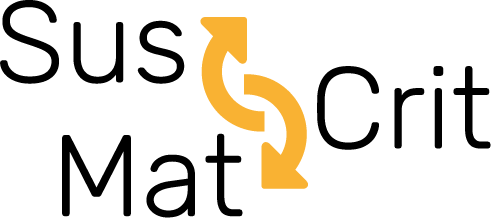The use of many substances is subject to legislation, as they can be dangerous and need to be treated with utmost care. For multinational companies, legislation is especially tricky, since they will have to comply with different laws depending on where they do business. These problems need to be taken into account in the design phase of products using restricted substances.
If companies cannot respond adequately to these challenges, they face consequences ranging from legal and reputational risks to losing market access. The conventional approach until today has been to comply with the limited number of regulations affecting substances in final products. In this module, a “material intelligence” approach is suggested, which also takes into account new regulations about the manufacture process; information is gathered about every process step and every material involved. This allows companies to make better informed choices if they can resort to databases storing that knowledge.
Criticality assessment methods usually don’t take the perspective of an individual business. The price of a certain product can vary due to other factors than the officially accepted criticality of some of its component materials. Criticality from a business perspective determines the importance and supply risk of every material in every product, which allows for much better decisions.
Learning objectives:
-
- You can explain the problems with the conventional approach to managing restricted substances legislation
- You understand how databases about materials, products and processes can help solve these problems
- You can discern the differences between criticality assessments done on an official level and those most useful for companies
- You can explain the basics of criticality assessment on the business level


